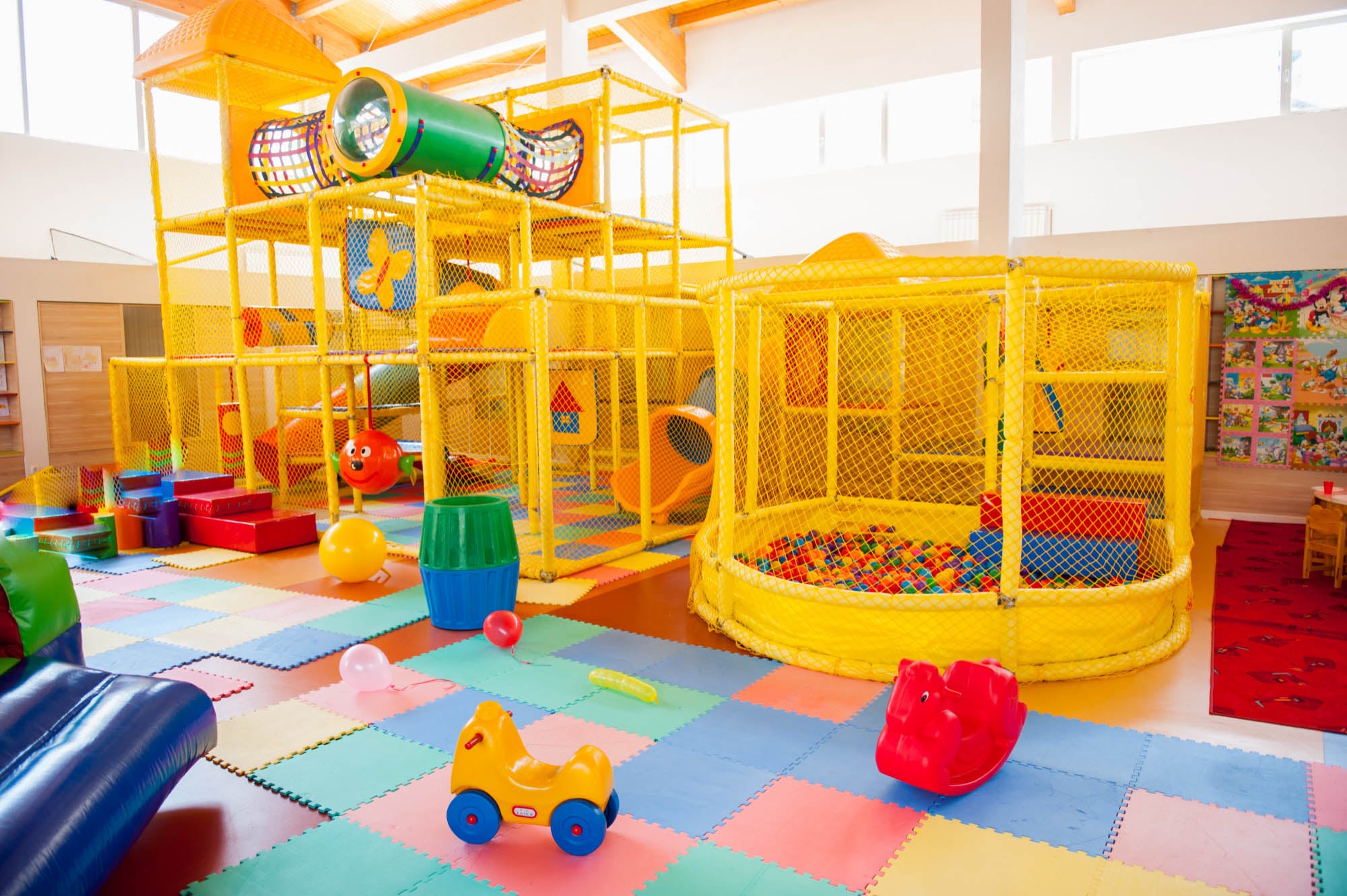
Soft Play Centre Health and Safety Templates & Guidance
Pre-filled, editable health and safety templates for soft play centres, kids' indoor play gyms, and children’s activity businesses — including risk assessments, policies, fire safety templates, COSHH documents, and more to keep your business safe, professional, and compliant while protecting young visitors and staff.
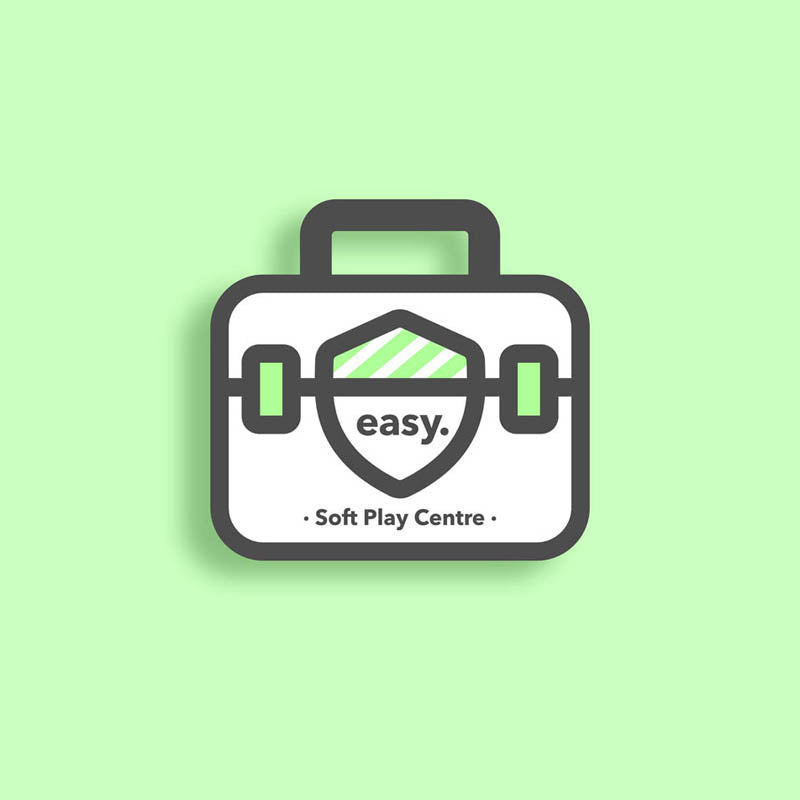
Take Control of Health and Safety in Your Soft Play Centre or Play Gym with Easy-to-Use Templates
Simplify health and safety management in your children’s soft play centre, indoor play area, or kids’ play gym with our editable templates, designed specifically for the soft play industry. These professional documents help play centre owners and managers stay compliant with health and safety regulations while protecting children, families, and staff from everyday risks in active play environments.
Many templates come pre-filled with detailed, soft play–specific content — including risk assessments, health and safety policies, fire safety templates, COSHH documents, accident report forms, cleaning procedures, staff safety guidance, and more — making completion quick, accurate, and stress-free. With our ready-to-use tools, you can focus on running a fun, welcoming, and safe play space for children while maintaining the highest standards of health and safety compliance.
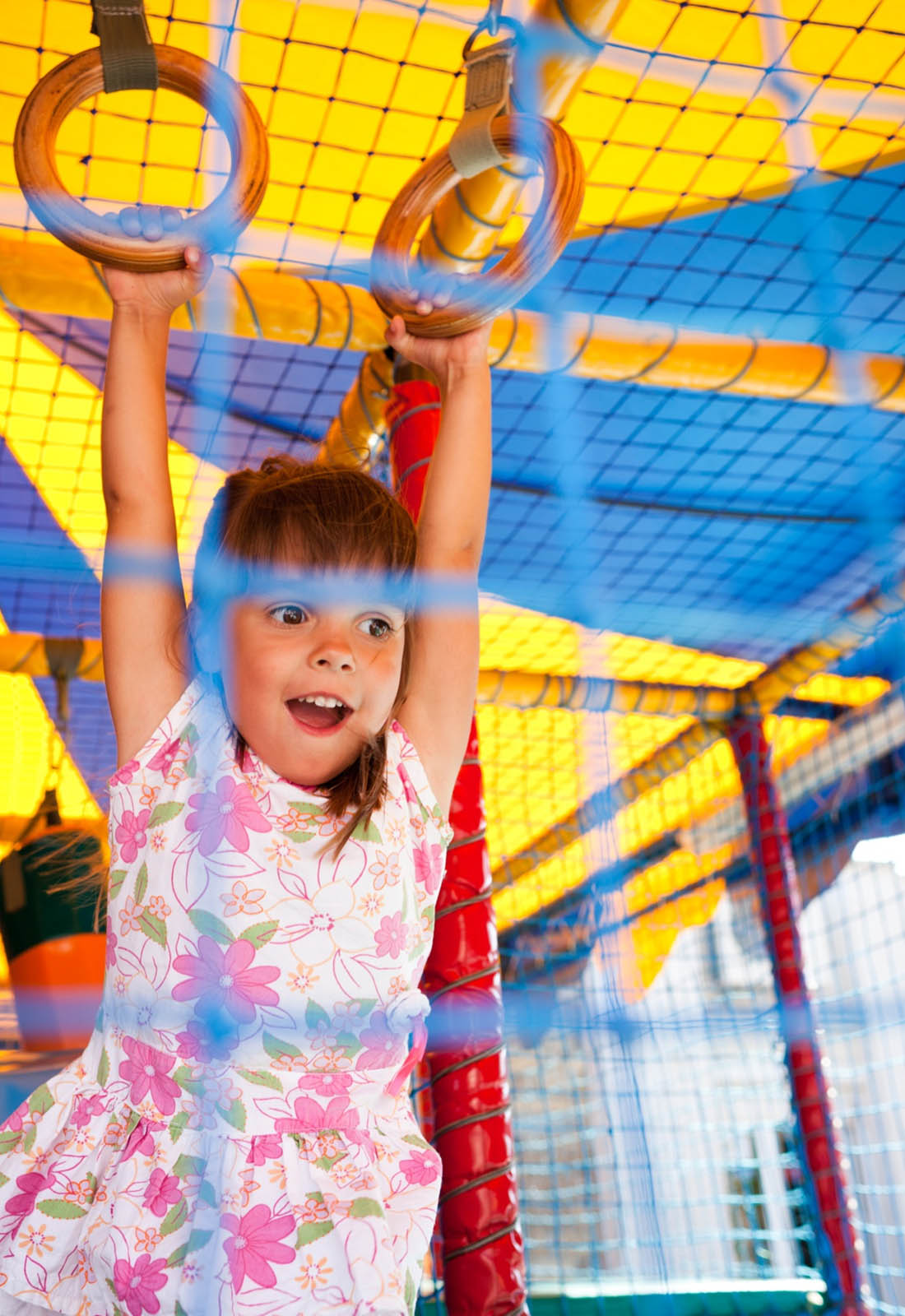
Beyond The Fun: Navigating Health and Safety in Soft Play Centres
Soft play centres and play gyms have become essential spaces for childhood development, providing environments where children can explore, learn, and grow. The importance of health and safety in these centres cannot be overstated, as it forms the backbone of a nurturing and secure setting for the youngest members of society.
Proactive Risk Management: Ensuring Physical Safety
Physical safety must always be a top priority in play centres. The management of risks associated with play equipment and activities is an ongoing process. It involves ensuring that all play structures and surfaces meet stringent safety standards to prevent accidents. Regular inspections, maintenance of equipment, and age-appropriate design are all critical to prevent potential injuries.
Hygiene & Health: A Clean Space for Play
In a world where children learn and explore primarily through touch, maintaining high standards of cleanliness is crucial. Effective hygiene practices help in preventing the spread of common childhood illnesses. This includes regular cleaning and disinfecting of play equipment, surfaces, and ensuring proper ventilation in indoor spaces.
Training & Supervision: The Human Element of Safety
The role of trained and attentive staff in these environments is invaluable. Staff training in emergency procedures, first aid, and child behaviour management are essential components of a safe play gym or centre. Effective supervision ensures that play remains safe while allowing children the freedom to enjoy their playtime.
Building Awareness: Educating on Health and Safety
Educating both staff and visitors about health and safety practices is vital. This includes clear communication of safety rules to parents and caregivers and engaging children in learning about safe play. This awareness helps in creating a collaborative environment where everyone plays a part in maintaining safety.
Conclusion: A Commitment to Safe & Healthy Play
The commitment to health and safety in soft play centres and gyms is a reflection of the business owner's dedication to the wellbeing of children. Health and safety measures ensure that children's play areas are not only fun and stimulating but also secure and healthy, providing peace of mind to parents and a safe space for children to thrive.
Top 3 Health and Safety Hazards in Soft Play Centres:
-
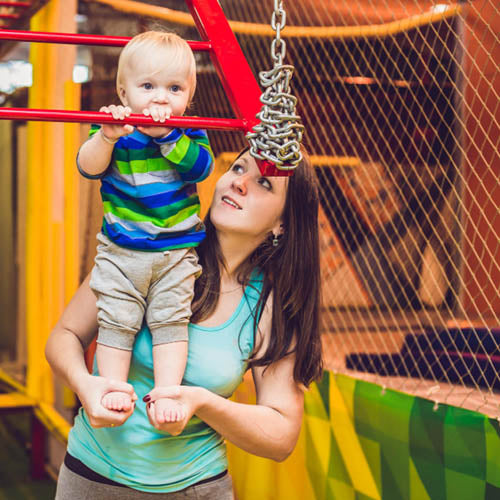
Supervision & Management
View ProductsInadequate adult supervision can increase the risk of accidents. It's important that the play area is properly staffed with trained personnel to monitor safety and intervene when necessary. Additionally, proper management of the number of children using the play area at one time can prevent overcrowding and reduce the risk of accidents.
-
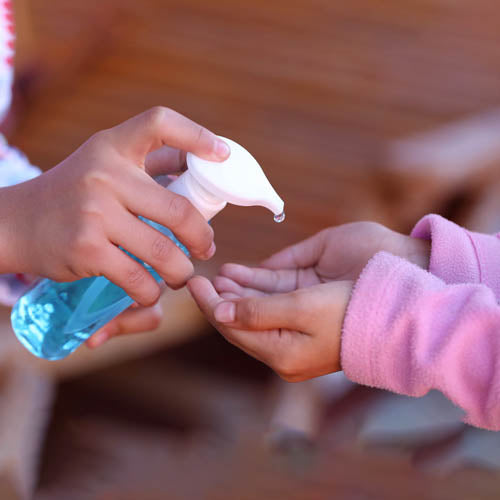
Hygiene & Infection Control
View ProductsHygiene & infection control are critical in children’s soft play centres to prevent the spread of illness among young children, who often share play spaces and equipment and have developing immune systems. Regular cleaning, sanitation and use of hand gel are essential for maintaining a safe, healthy environment for children to play in.
-
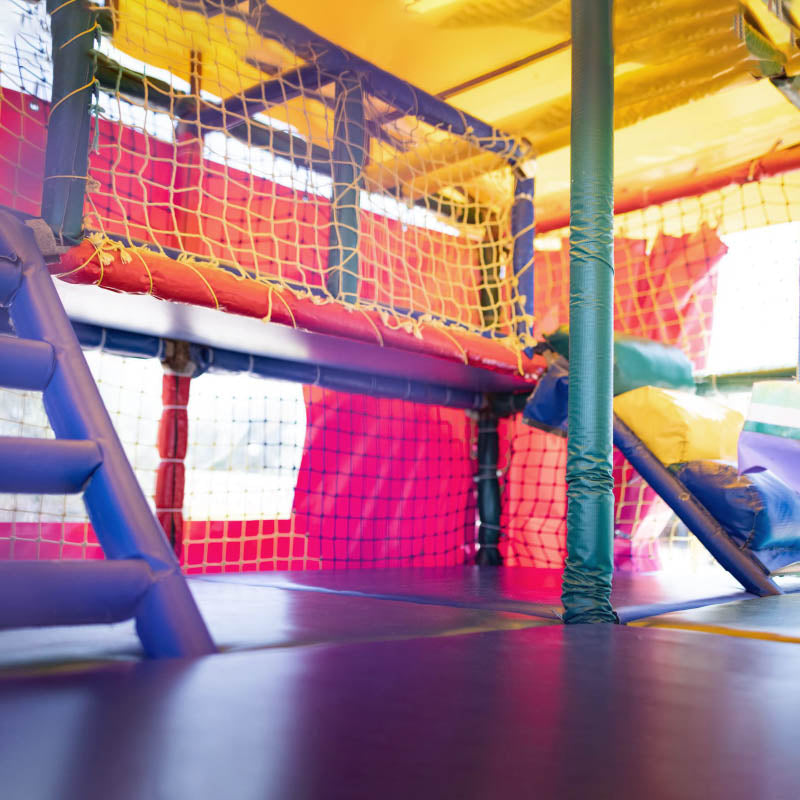
Physical Injury Risks
View ProductsIn children's soft play centres, the risk of falls, impacts, and collisions is inherent with active play. Ensuring equipment is properly designed and maintained, with adequate padding and soft matting, is vital to mitigate these risks. These safety measures provide a secure environment that reduces injury risk while children play and explore.

Why pay expensive consultant fees when you can manage health and safety yourself?
Improve your compliance while saving time and money by creating health and safety documents, customised to your business, yourself. Our health and safety range for children's soft play centres and play gyms covers a suite of essential templates including health and safety policies, risk assessments, COSHH forms, fire safety templates, health and safety guidance, safety posters and more.
Benefits of managing health and safety yourself...
-

Improve safety
Health and safety is about preventing accidents, incidents and ill-health by assessing the environment, the activities that take place within it, and taking appropriate action.
-

Ensure compliance
Our ready to use templates, many of which are pre-filled, will enable you to quickly increase your compliance to health and safety law.
-

Save money
With health and safety consultants often charging upwards of £400 per day, there is a better way. Take control and save yourself time and money.
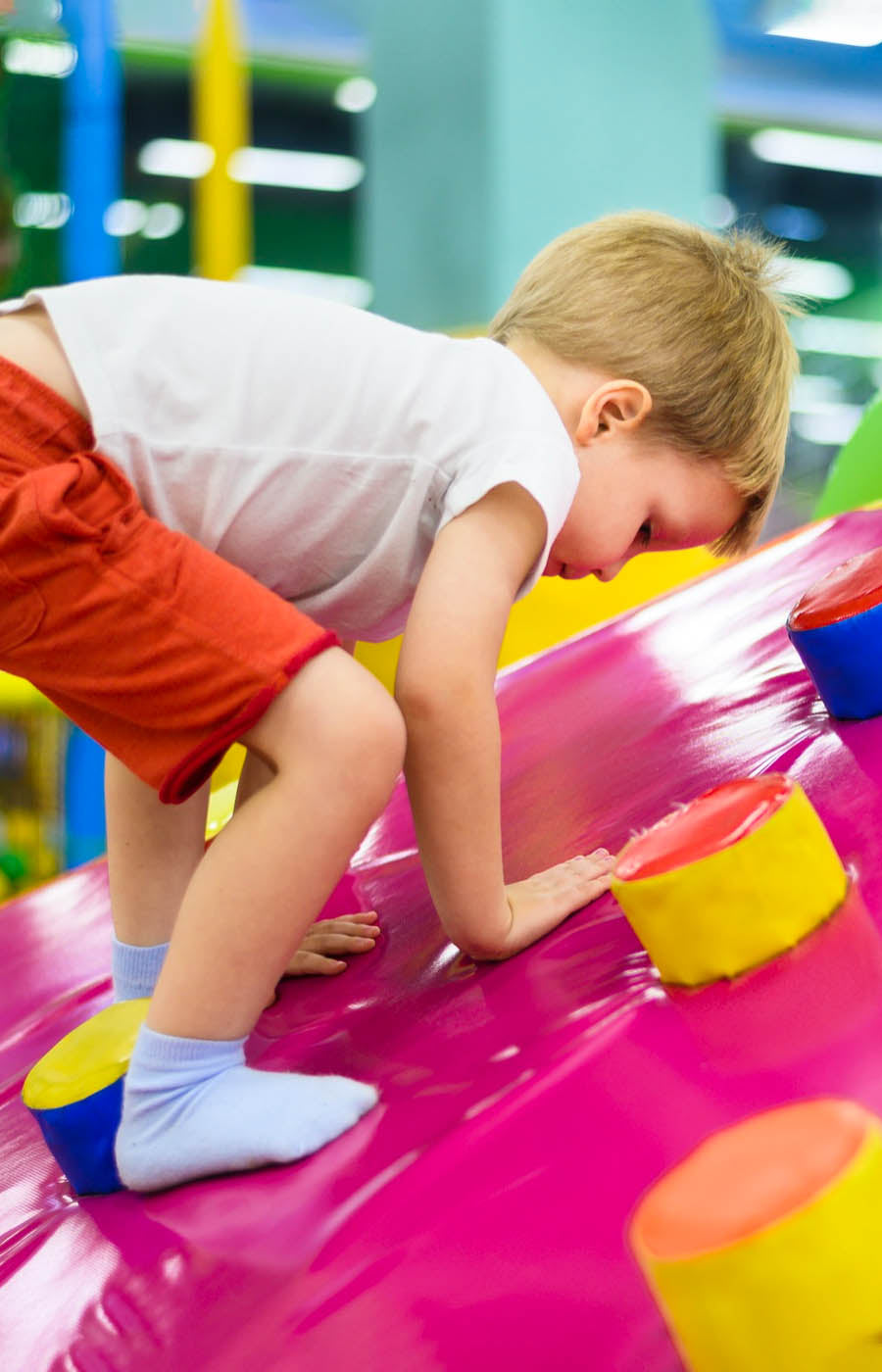
Balancing Time, Cost, & Safety in Children's Soft Play Areas
We understand that, as an owner or manager of a children's soft play centre, managing time and financial resources efficiently is a constant challenge, especially when it comes to health and safety compliance. Ensuring the safety of the little ones in your care is a top priority, yet the demands of staying compliant can often feel overwhelming amidst the other day-to-day responsibilities of running your business.
Balancing the budget while meeting the necessary safety standards might seem like a daunting task. However, remember that investing in health and safety is not just a legal obligation but also a crucial aspect of building trust with parents and safeguarding your reputation. There are cost-effective and time-efficient strategies and resources available that can help streamline this process, ensuring you can provide a safe, enjoyable environment without stretching your resources too thin.
At easyhealthandsafety, we take the pressure off soft play centres and play gym businesses by providing ready-to-use templates and practical guidance that are affordable, easy to use, simple to edit, and tailored to the soft play industry.
Frequently Asked Questions
Soft Play Health and Safety FAQs
How can I create a risk assessment for my children’s soft play business?
The easiest way to create a risk assessment for your soft play centre is by starting with a pre-filled, industry-specific risk assessment template that covers all the common hazards associated with children’s play areas, along with controls to mitigate the risks they pose.
To write a compliant risk assessment from scratch, begin by identifying potential hazards — such as slips, trips, equipment faults, hygiene issues, and fire risks. Then, evaluate who could be harmed and how, decide on suitable control measures, and record your findings. Regular reviews and updates should be carried out to ensure your assessment remains accurate, especially if you make any changes to your layout or equipment. These steps are required under health and safety regulations including the Management of Health and Safety at Work Regulations 1999.
Our Soft Play Risk Assessment Template is designed to make this process quick and straightforward. It comes pre-filled with detailed, play-centre-specific content to help you identify key risks and implement suitable controls. Simply edit and adapt the document to match your own soft play environment for a professional, compliant result.
For a complete compliance solution, our Soft Play Health and Safety Template Bundle includes everything you need to manage compliance across your business — from risk assessments and fire safety templates to COSHH documents, accident report forms, and staff safety guidance. It’s the all-in-one toolkit for maintaining a safe, compliant, and well-managed soft play centre.
Do soft play centres need to complete a risk assessment?
Yes, all soft play centres and indoor play gyms must complete a risk assessment to comply with health and safety laws.
Under the Health and Safety at Work etc. Act 1974 and the Management of Health and Safety at Work Regulations 1999, every employer and business owner is legally required to assess and manage risks within their premises. For soft play centres, this means identifying potential hazards such as falls, faulty equipment, hygiene risks, fire safety issues, and overcrowding — and putting in place effective control measures to prevent accidents or injuries. A written risk assessment is mandatory if you employ five or more people, but it is strongly recommended for all soft play businesses, as it demonstrates due diligence and helps protect children, staff, and visitors.
The easiest way to complete your assessment is by using our editable Soft Play Risk Assessment Template, pre-filled with detailed, play-centre-specific content to save time and ensure accuracy.
Or, if you want everything you need in one package, our Soft Play Health and Safety Template Bundle includes risk assessments, policies, fire safety forms, accident reports, and staff guidance — all designed to help you stay compliant and maintain a safe, fun environment.
What does a risk assessment in a soft play centre or play gym involve?
A risk assessment in a soft play centre is a systematic process to identify and evaluate potential hazards that might cause harm to children and staff. It involves analysing the likelihood and potential severity of these risks and determining appropriate measures to mitigate or eliminate them. This process is crucial in ensuring the safety of the play environment, as it helps identify everything from equipment faults to potential hygiene issues.
Our Soft Play Risk Assessment Template is designed to make this process quicker, easier, and fully compliant with health and safety regulations. It comes pre-filled with detailed, industry-specific content tailored to the unique risks found in children’s play centres and play gyms — including falls, hygiene control, fire safety, and equipment maintenance. Simply edit the template to reflect your own site and activities, and you’ll have a professional, ready-to-use risk assessment that helps protect children, staff, and visitors while keeping your business compliant and well-organised.
How often should equipment in soft play centres be inspected and maintained?
Equipment in soft play centres requires a tiered approach to inspection and maintenance. Daily checks are crucial to identify and address any immediate hazards like broken equipment or spillages. Weekly inspections are more detailed, focusing on wear and tear and overall safety. Annual inspections are generally conducted by external safety experts and focus on comprehensive safety compliance. This tiered approach ensures that any potential risks are identified and mitigated promptly.
Find our Soft Play Centre Risk Assessment Template here.
Find our Soft Play Centre Health and Safety Template Bundle here.
Who is responsible for conducting risk assessments in soft play centres?
The responsibility for carrying out risk assessments in a soft play centre lies with the business owner, employer, or person in control of the premises. Under the Health and Safety at Work etc. Act 1974 and the Management of Health and Safety at Work Regulations 1999, they have a legal duty to identify hazards and take all reasonable steps to protect staff, visitors, and children from harm.
In most cases, the manager or owner will complete the assessment themselves or delegate the task to a competent person — someone with the right knowledge, training, and experience to recognise risks and implement suitable control measures. Some larger play centres may choose to hire external health and safety consultants, although this can be costly for small businesses, with fees often reaching several hundred pounds per day.
To make the process quicker, simpler and more affordable, our Soft Play Risk Assessment Template offers a ready-made solution. It’s pre-filled with soft play–specific content, helping you identify risks, record findings, and assign responsibilities without the expense of hiring a consultant — while still ensuring full compliance with health and safety regulations.
How often should risk assessments be carried out in soft play centres?
Risk assessments in soft play centres should be treated as an ongoing process rather than a one-off task. Legally, they must be reviewed regularly to ensure they remain up to date and reflect current operations. As a best practice, a full review should be carried out at least once a year, or sooner if there are any significant changes — such as new equipment, alterations to the play layout, staffing changes, or after an accident or near miss. Daily visual checks and weekly inspections are also recommended to identify immediate hazards, ensuring risks are managed before they escalate into safety issues.
Our editable Soft Play Risk Assessment Template makes it easy to keep on top of these reviews. It includes pre-filled content for relevant hazards, control measures, and responsibilities, helping you stay compliant with health and safety regulations without the stress of starting from scratch.
For a more comprehensive approach, our Soft Play Health and Safety Template Bundle provides everything you need to manage compliance across your entire business. Alongside the risk assessment template, it includes fire safety forms, COSHH documents, accident report templates, staff safety guidance, and more — all designed to help you maintain a safe, well-managed, and fully compliant soft play environment.
How should accidents and injuries be recorded in soft play gyms?
All accidents and injuries that occur in a soft play gym must be recorded accurately and promptly, in line with health and safety regulations. Under the Reporting of Injuries, Diseases and Dangerous Occurrences Regulations 2013 (RIDDOR), certain incidents — such as serious injuries or those requiring hospital treatment — must also be reported to the Health and Safety Executive (HSE). However, even minor incidents should be logged internally, as these records help identify patterns, highlight potential hazards, and demonstrate that your business is taking reasonable steps to protect children, visitors, and staff.
The best way to document incidents is by using a structured Accident Report Form, which captures key information such as the date, time, location, people involved, and a description of what happened. Our Accident Report Form Template is designed specifically for soft play centres and play gyms, providing an easy-to-use, professional format for recording incidents in full compliance with health and safety standards.
For complete peace of mind, the form is also included within our Soft Play Health and Safety Template Bundle, alongside risk assessments, fire safety forms, COSHH documents, and staff safety guidance — giving you everything you need to manage compliance, prevent future incidents, and maintain a safe environment for children and families.
What are the cleaning and hygiene requirements for soft play centres?
Given the high risk of germ transmission in environments frequented by children, soft play centres must adhere to strict cleaning and hygiene procedures. This includes daily cleaning of all play equipment and surfaces, with particular attention to high-touch areas. Regular deep cleaning schedules should also be in place to ensure a more thorough sanitation of the entire facility.
Additionally, policies should be established to manage the attendance of sick children, aiming to reduce the spread of contagious illnesses. Play centres should also promote and facilitate good hygiene practices, such as hand washing among children and adults.
Our Soft Play Health and Safety Template Bundle includes all the key documents needed to manage hygiene and infection control safely and efficiently. It features COSHH documents for cleaning chemicals, risk assessments with controls for hygiene and sanitisation, accident report forms, staff safety guidance, and more — all designed to help you meet your legal obligations and maintain high standards of cleanliness. With these professional, ready-to-use templates, you can create a safe, hygienic, and fully compliant soft play environment for children, families, and staff.
What training do staff need in children's play centres?
Staff working in children's play centres require instruction and where necessary, training that covers various aspects of child safety and care. This includes first aid training to handle any injuries or medical emergencies, training in emergency evacuation procedures, and understanding of child behaviour to manage and supervise children effectively. Regular refresher courses are also important to keep the staff updated on the latest health and safety practices and regulations.
Easily improve compliance in your soft play business with our Soft Play Centre Health and Safety Template Bundle here. — designed to make meeting legal requirements simple.
How should fire safety be managed in children's soft play areas?
Fire safety in children’s soft play areas must be managed through a structured and proactive approach, beginning with a thorough fire risk assessment. This assessment identifies potential fire hazards, evaluates who might be at risk, and outlines control measures to reduce the likelihood of a fire and ensure safe evacuation if one occurs. Under the Regulatory Reform (Fire Safety) Order 2005, every business owner or manager responsible for the premises has a legal duty to carry out and regularly review a fire risk assessment.
Essential fire safety measures include keeping fire exits clear and well-marked, maintaining functional smoke detectors and fire extinguishers, and displaying clear evacuation routes. Staff must also be trained in fire safety procedures, including how to use fire equipment and safely guide children and families out of the building in an emergency. Regular fire drills should be carried out to ensure everyone understands the evacuation process. Our Fire Risk Assessment Template is designed to make this process easier, guiding you step by step through identifying hazards, assessing risks, and recording safety actions specific to soft play environments.
Our Soft Play Health and Safety Template Bundle includes a pre-filled Fire Risk Assessment Template, along with policies, accident report forms, COSHH documents, and staff guidance. These ready-to-use resources make it easier to meet fire safety regulations, document your compliance, and keep your soft play centre a safe and reassuring place for children, parents, and staff.
How should allergies and health conditions of children be managed in soft play centres?
Managing allergies and health conditions in soft play centres requires clear policies, good communication, and well-trained staff. Children may have allergies to foods, materials, or cleaning products, and some may have medical conditions such as asthma or diabetes that require special consideration. To comply with health and safety laws, play centre owners and managers should have procedures in place to identify, monitor, and respond to these risks effectively. This includes gathering relevant health information from parents or guardians when children visit, displaying clear allergen signage in food areas, and ensuring all staff are trained to respond quickly in case of an allergic reaction or medical emergency.
Allergy and health management should be part of your wider health and safety planning, supported by a detailed risk assessment. Our Soft Play Risk Assessment Template includes pre-filled content on allergy-related hazards and control measures to minimise risks — such as preventing cross-contamination, ensuring safe cleaning practices, and keeping first aid provisions readily available.
What are the key health and safety regulations for soft play centres and play gyms?
Soft play centres and play gyms are governed by several regulations, primarily the Health and Safety at Work etc. Act 1974, which mandates employers to ensure the safety of both employees and anyone affected by their work, including children in play areas. The Management of Health and Safety at Work Regulations 1999 requires employers to conduct thorough risk assessments and take appropriate measures to manage risks. This includes ensuring the safety and regular maintenance of play equipment, training staff in health and safety practices, maintaining high hygiene standards, and implementing effective emergency procedures. These regulations are enforced to create a safe and healthy environment for children to play in.
For a complete compliance solution, our Soft Play Health and Safety Template Bundle includes everything you need to manage compliance across your soft play business — from risk assessments, health and safety policies and fire safety templates to COSHH documents, accident report forms, and staff safety guidance. It’s the all-in-one toolkit for maintaining a safe, compliant, and well-managed soft play centre.







